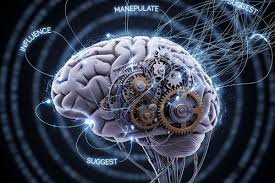Share This Article
Lately, there’s been this growing idea that technology might one day take over roles like therapist, teacher, coach, or even doctor. Sure, it’s getting pretty good at things like organizing information or offering suggestions. But here’s the thing I keep coming back to: real care isn’t about efficiency or having the right answer. It’s about being present. It’s about noticing the pause before a child speaks, the shift in someone’s tone, or the way a parent’s eyes well up before they even say a word. That’s not something you can teach a machine, at least for now.
The Moments That Matter
I work in mental health, and the most meaningful parts of my work don’t show up in reports or treatment plans. They’re in the little things. Like sitting on the floor next to a child so I’m not towering over them. Or softening my voice when I sense they’re shutting down. These are strategies built on connection and care. Yes, I use digital tools. They help me stay organized, edit, or quickly find research for a project. It’s like having a really fast assistant. But when it comes to truly helping someone, that’s a whole different thing.
Imagine a child afraid of the dark. You could suggest a nightlight, sure. But that advice only works when it’s offered with kindness, patience, and an understanding of that child’s specific world. That’s what emotional intelligence looks like, and it can’t be downloaded (Goleman, 2006). Or think of a teenager who’s totally given up on homework. It’s easy to talk about rewards or consequences. But that won’t get to the heart of what’s really going on. Is it anxiety? Exhaustion? Feeling overwhelmed? A trained therapist listens for the story underneath. And more importantly, they listen with care (Siegel & Bryson, 2018).
What People Actually Want
There’s research showing this, too. In one study, people using digital support for mental health said it was helpful, but something was missing. That missing piece? Real connection (Cai et al., 2024). In another study, even when the advice sounded like something a counselor might say, people still wanted to talk to a real person. Because care is about advice offered with safety, trust, and being understood (Miner et al., 2017). It’s those quiet, human things—knowing when to speak, or when to just sit with someone in silence—that matter most. Those aren’t skills you learn from a script. They come from experience and from being human.



